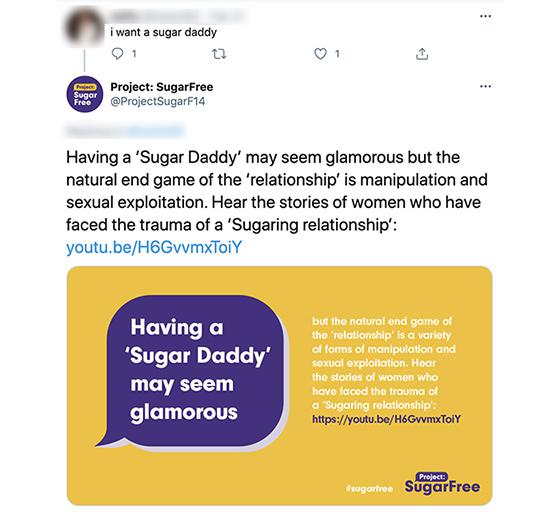Agency DNA Uses AI Platform To ID, Report Predatory Social Posts
In an effort to deter would-be sex offenders from preying on underage youth, ad agency DNA in Seattle has created and launched “Project: SugarFree,“ an AI-based platform that intercepts predatory social media posts and reports and identifies exploiters.
So-called “sugaring language” is code for offers to give or receive transactional sex. The program has been in beta test phase for six weeks, and has removed nearly 1,000 posts originating in the state of Washington that contain such language.
Project: SugarFree was created to support Seattle non-profit StolenYouth, an organization dedicated to disrupting marketplaces that fuel child sex trafficking. The “sugar lifestyle” has been identified by law enforcement as an initial step into prostitution and a way to attract child sex trafficking victims and exploiters.
advertisement
advertisement
“We were conducting a social listening exercise for a client in the financial services space and noticed tens of thousands of posts using sugaring language while mentioning our client and other big banks by name,” said Rob Scherzer, senior data strategist at DNA. That led to the idea to create the campaign.
The campaign platform responds in real time to “sugar” posts with facts and data to dissuade vulnerable populations from entering into sugaring relationships while reporting and removing exploiters and potential criminals from the Twitter platform, Scherzer added.
The automated AI platform deploys Twitter bots to seek out potential sugar language in posts on the social media network. The bots select and post appropriate messages of deterrence from a database of hundreds of pre-crafted graphics and copy designed to reply to those curious about sugaring lifestyles.
Tweets identified as predatory are reported.
DNA consulted with King County Senior Deputy Prosecuting Attorney Benjamin Gauen, who leads his office’s anti-trafficking initiatives. The office has seen an increase in sex trafficking and assault cases that arise from sugaring relationships.

